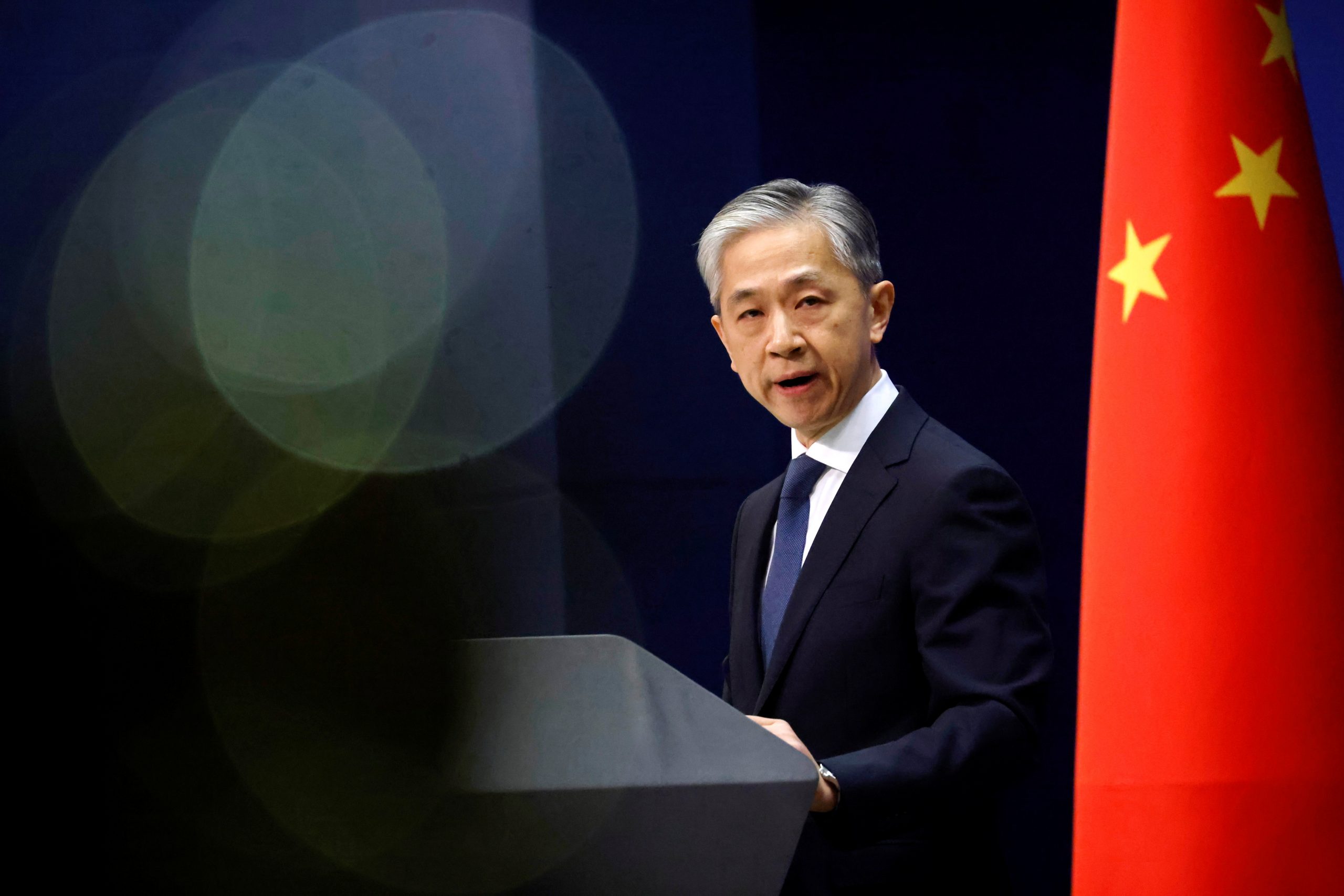
Willie R. Tubbs, FISM News
[elfsight_social_share_buttons id=”1″]
President Joe Biden’s pledge to Taiwan resulted in stern warnings from the Chinese on Friday.
A day after Biden told a CNN town hall he would come to the defense of Taiwan if that nation was attacked, Chinese foreign ministry spokesperson Wang Wenbin urged the U.S. to “be prudent with its words and actions.”
COOPER: "Are you saying that the United States would come to Taiwan’s defense?"
QUESTIONER: "If China attacked?"
BIDEN: "Yes, we have a commitment to do that." pic.twitter.com/YTgxMaD4MP
— Townhall.com (@townhallcom) October 22, 2021
“Taiwan is an inalienable part of China’s territory,” Wang told reporters gathered for his regular press conference. “The Taiwan question is purely China’s internal affairs that allow no foreign interference. On issues that bear on China’s sovereignty, territorial integrity and other core interests, no one shall expect China to make any compromise or trade-offs. No one should underestimate the resolve, the will and the ability of the Chinese people to defend their national sovereignty and territorial integrity. Do not stand on the opposite side of the 1.4 billion people.”
Tensions have mounted for months between the U.S. and China over Taiwan, a democratic nation that China says it owns.
A week ago, a Chinese state-run media outlet warned of a “death blow” to U.S. service members should the United States intervene in Taiwan.
Earlier this week, the testimony of Nicholas Burns, Biden’s choice to serve as ambassador to China, did little to quell the heated rhetoric.
“The [People’s Republic of China’s] genocide in Xinjiang and abuses in Tibet, its smothering of Hong Kong’s autonomy and freedoms, and its bullying of Taiwan are unjust, and must stop,” Burns said in his opening statement to the Senate Committee on Foreign Relations. “Beijing’s recent actions against Taiwan are especially objectionable. The United States is right to continue to adhere to its one-China policy. We are also right to support the peaceful resolution of disputes, and to oppose unilateral actions that undermine the status quo and stability in the Indo-Pacific.”
In his Thursday press conference, Wang said “the remarks of Mr. Burns smack of Cold War zero-sum mentality and run counter to facts. China firmly rejects them.”
Wang later added, “We advise Mr. Burns to be keenly aware of the overall trend of world development and people’s aspiration, learn the real situations of China objectively, view China and China-US ties in (a) rational manner and avoid underestimating the strong resolve, determination and capability of the Chinese people to defend their rights.”
Wang’s press conferences and Burns’ testimony revealed a rhetorical gray area surrounding the words policy and principle.
Burns and the U.S. have repeatedly referred to the One-China Policy, while Wang and China have continued to urge the U.S. to adhere to the One-China Principle.
While the two seem interchangeable, the distinction is important.
The One-China Policy was the result of the rise of communism in China. At one point, both the People’s Republic of China and the Republic of China claimed to be the nation of China, and through the One-China Policy, the U.S. agreed that there was only one China, the PRC.
The One-China Principle is China’s assertion that Taiwan is a part of the sovereign nation of China, something to which the U.S. has never agreed.
Through the “Three Communiqués,” the United States acknowledged that people in both Taiwan and the Chinese mainland believed there was one China, but never officially recognized the two nations as a single entity. Additionally, the “Three Communiqués” hold that the United States can continue to hold diplomatic relations with Taiwan, whether officially or unofficially.
